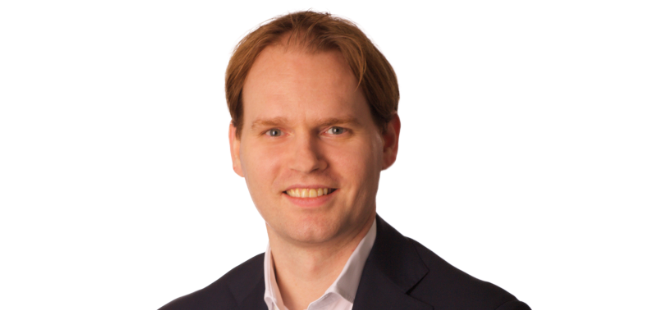Dr Jochem Caris, associate medical director at Aviva, speaks to Health & Protection about catching Covid at the start of the pandemic, successfully combining medical and business skills and participating at the World Varsity Rowing Championships.
How did you get your start in the sector?
For years I had been looking for a role which would combine the skills I learned through medicine and business. I felt that however rewarding it can be to treat a single patient, I had big ideas that went beyond my previous roles. My passion is to help patients connect to the right doctor. The way the private medical insurance (PMI) industry, and in particular Aviva, is evolving aligns very well with that goal.
What do you enjoy most about your current role?
I love that my role at Aviva is very broad, and I get to work with an amazing team to help shape our propositions for the future. I lead on value-based healthcare. That is important as it will make healthcare more sustainable. I also love driving the digital transformation of our clinical processes and finding ways to better utilise our claims data to improve our services to our customers.
Who is your role model – in life or in work?
I see myself as a generalist in both my life and work, keeping my eyes open for things outside my usual scope. I find it inherently difficult to pick a single role model. There are qualities in others I value and besides the obvious, like being hardworking and caring for others, I find being a critical friend is a very important skill. Effective leaders surround themselves with people who challenge them.
One person I do admire is John Hunter, the famous Scottish surgeon and founding father of scientific surgery. He was the first to apply science to surgery when everyone else at the time was learning their trade by learning from their own mistakes; he made it possible to learn from other people’s mistakes.
Who has been your most important mentor in your career so far and why?
A doctor who taught me in medical school was very kind to me. She once told me that I really was a doctor when I wasn’t yet qualified. When times are tough, I always think of how she supported me and taught me always to be patient centric.
What advice would you give to people thinking about a career in the sector?
For me, the most important aspects of a job are that you have the feeling you can do something meaningful and that your organisation will be supportive in helping you achieve your goals.
What has been your biggest setback and how did you overcome it?
I studied medicine in the Netherlands, but to get accepted you need to participate in a national ballot. This was done to ensure everyone has a fair chance and initially I did not get a place, which was disappointing. As I also had other interests, I decided to study business administration. A few years into that, I still had the urge to pursue medicine.
At the age of 23, I got into medical school and that was not easy. Although you are more experienced, your ability to absorb information is already lagging behind the 18-year-old students, but I felt that I was able to use the communication skills I gained from doing many other things to my advantage.
Laugh or cry – what did your most memorable client or case make you want to do and why?
At the start of pandemic, I was looking after a patient following major surgery, the type of surgery that impacts your physical body but also is a test of your mental resilience. I spent a lot of time with her to give her the support she needed. She picked up Covid-19 from a visiting relative and I caught it from her. This first wave was incredibly scary, there was no testing and no treatment, but it made us realise the important things in our lives and cherish what we have.
What’s your ultimate goal for your career?
My passion has always been to address the issue of variation in healthcare, because I strongly believe everyone should have an equal chance of good outcomes. And these outcomes should be achieved in a sustainable way by identifying best practice and replicating that, so everyone benefits from it. One way of achieving this is by driving the right incentives for doctors and improving transparency. Once we have moved away from volume-based care and have established a deeper collaboration with key stakeholders in the system, I will be happy.
How would your boss describe you?
Although, we have only worked together for a relatively short time, Dr Doug Wright (Aviva medical director) would describe me as the person in the room who does not go with the flow.
What’s your biggest talent away from work?
I used to be a very active rower as a junior, participating in the world championships and at Varsity level. Unfortunately, I don’t have as much time now, but I feel that I am a champion at DIY, considering that I recently bought a fixer-upper house which consumes all my free time, and I enjoy that equally.
What mantra do you live by?
‘A day without laughter is a day not lived’, we say in Dutch. This is obviously easier said than done on some days, but I am passionate about creating a positive and relaxed environment. This breaks down any barriers and allows people to speak what’s on their mind and therefore increase their feeling of contribution.
What song would you regard as your theme tune?
My favourite artist is Mayer Hawthorne, who is an artist from Detroit heavily influenced by the 1970s and taking his own spin on it into the 21st century. His music is perfect for calming down.
